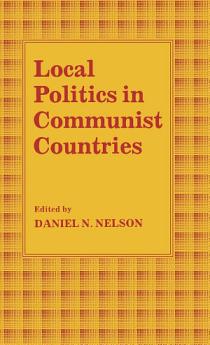Local Politics in Communist Countries
આ ઇ-પુસ્તક વિશે
In this volume, Daniel N. Nelson has assembled a team of international scholars to consider local politics in Communist party states including the U.S.S.R., China, Poland, Yugoslavia, and Romania. Together, they explore how local social and political forces are articulated in the national and party organizations; they also reveal how the study of comparative local politics provides vitality for the study of national politics. Rather than treating local communities as receivers and translators of national inputs, the contributors demonstrate that the local dimension and national politics mutually influence one another and illuminate the social reality in communist societies.
લેખક વિશે
Daniel N. Nelson is associate professor of political science at the University of Kentucky.






